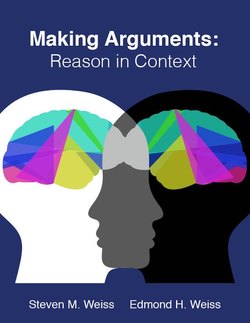Читать книгу Making Arguments: Reason in Context - Edmond H. Weiss - Страница 19
На сайте Литреса книга снята с продажи.
Chapter 2: Terms, Roles, and Responsibilities
ОглавлениеLike any formalized academic discipline, argumentation has a distinctive vocabulary. Much of its language is shared with other disciplines in which making arguments--and defending claims--is central. Philosophy, and in particular its subspecialty Logic, uses much of the terminology; law, as a both a profession and a subject, is loaded with terms that debaters and advocates use outside of the courtroom.
Rhetoric, a subject that examines the rationale for all sorts of persuasive discourse, dovetails significantly with the field of argumentation. English composition, in both its argumentative and expository dimensions, is a sister study to argumentation, in that writers must incorporate aspects of argumentation theory in the development of formal, written arguments. Almost all of the humanities and social sciences incorporate, respectively, linguistic and logical strategies that are the hallmark of argumentative studies. Even scientific disciplines are argumentative communities; the way in which scientists argue will occupy a significant portion of a later chapter.
Our goal in this chapter is to discuss how the field of argumentation describes itself. In the process, we clear up some misconceptions about argument.
